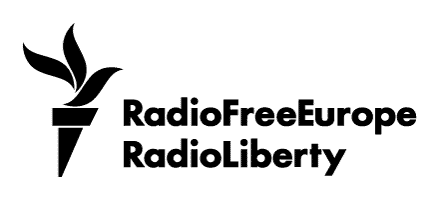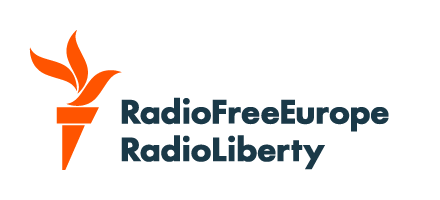Prague, 3 August 2005 (RFE/RL) -- Moscow is condemning in strong words the attack on Russian teenagers in Warsaw, saying anti-Russian sentiments are widespread in Poland.
Russian President Vladimir Putin has called the attack an “unfriendly” act.
"I am asking the Foreign Ministry and the presidential administration to contact Polish colleagues to understand what Polish authorities are doing in order to respond adequately to this unfriendly act which can only be qualified as a crime," Putin said.
Russian news agencies report that the three children of Russian diplomats were attacked in a Warsaw park by 15 youths shouting anti-Russian slogans.
Moscow said the attackers beat the teenagers and wants an official apology from Warsaw. But the Polish government has said it views the incident as a common criminal act.
Boris Makarenko, deputy director of the Center for Political Technologies, a Moscow-based think tank, said there is some ground for a tough Russian stance.
"Eyewitnesses say that the skinheads [the attackers] left the site of the fight on a microbus," Makarenko said. "I don't know many hooligans who are traveling in microbuses."
The report that the microbus was waiting for the attackers to take them away cannot be independently confirmed.
Even leaving such odd circumstances aside, analysts say that anti-Russian feelings are strong and old in Poland, making the beating a “hate crime” of international significance to Moscow.
Makarenko said that much of the anti-Russian feelings in Poland is caused by grievances of the past.
"The Polish envoy to Moscow, when invited to the [Russian] Foreign Ministry, denied those anti-Russian sentiments, but they have existed for more than 200 years," Makarenko said. "It is easy to understand why, and I am not going to defend Russia either for three divisions of Poland [at the end of the 18 century] or many other [unjust things done to Poland]. These anti-Russian sentiments resurfaced in the recent decade and there are many examples of that."
Russian officials said that bad feelings toward Russia are widespread in Poland.
The Polish daily "Gazeta Wyborcza" reports that Gleb Pavlovskii, an adviser to Putin, complained during a recent visit to Warsaw that "Poles talk about Russians the way anti-Semites talk about Jews." Poland's foreign minister, Adam Rotfeld, replied that Russian politicians are "looking for an enemy and…find it in Poland."
Jakub Boratynski, director of international programs at the independent Polish think tank Stefan Batory Foundation, said that Makarenko overlooks the fact that anti-Russian feelings have substantially decreased since Poland joined the EU and NATO, and that Poles feel more safe than before.
On the other hand, he admited that many people in Poland still look suspiciously at Russian foreign-policy moves and are afraid Russia is seeking to "recreate an empire in a different form."
However, both analysts say that the current row is more about politics and the new role Poland is playing in the region than about history.
Makarenko noted that Poland and Russia have recently clashed over the events in Ukraine, and that Poland sometimes criticizes Russia’s stance on human rights or press freedoms.
Boratynski said many Russian politicians are upset with Poland's entry into the EU and NATO. He said the Kremlin perceives Poland's involvement in encouraging democracy in the region as limiting its own influence. The analyst also said the Kremlin is using the attack on the teenagers to show its displeasure over Polish policy in the region as a whole.
"The incident as we look at it in an isolated manner has really created a very strange reaction," Boratynski said. "However, of course, it becomes much more logical if we look into the current context of Polish-Russian relations."
Boratynski said it is not an accident that the reaction comes at the time of tense relations between Russia and Belarus.
"I think the Russians are seizing a very good opportunity to try once gain for the external audience, mostly for the European Union, to show that actually Poland cannot be treated in a serious manner, that it is a country kind of obsessed with anti-Russian phobia," Boratynski said.
Last week, Poland recalled its ambassador to Belarus after weeks of tit-for-tat diplomatic expulsions by both countries. Belarusian President Alyaksandr Lukashenka is accusing Poland of using the Polish minority in Belarus to help push him out of power.
Boratynski said that by portraying Poland as a place obsessed with anti-Russian sentiments, the Kremlin plays into the hands of Lukashenka, who can now more easily reject Warsaw's demands to respect the rights of Polish minority in Belarus.
See also:
Poland/Russia: Ballerinas Take The Fall In War Of Words
Russian President Vladimir Putin has called the attack an “unfriendly” act.
"I am asking the Foreign Ministry and the presidential administration to contact Polish colleagues to understand what Polish authorities are doing in order to respond adequately to this unfriendly act which can only be qualified as a crime," Putin said.
Russian news agencies report that the three children of Russian diplomats were attacked in a Warsaw park by 15 youths shouting anti-Russian slogans.
Moscow said the attackers beat the teenagers and wants an official apology from Warsaw. But the Polish government has said it views the incident as a common criminal act.
Boris Makarenko, deputy director of the Center for Political Technologies, a Moscow-based think tank, said there is some ground for a tough Russian stance.
"Eyewitnesses say that the skinheads [the attackers] left the site of the fight on a microbus," Makarenko said. "I don't know many hooligans who are traveling in microbuses."
The report that the microbus was waiting for the attackers to take them away cannot be independently confirmed.
Even leaving such odd circumstances aside, analysts say that anti-Russian feelings are strong and old in Poland, making the beating a “hate crime” of international significance to Moscow.
Makarenko said that much of the anti-Russian feelings in Poland is caused by grievances of the past.
"The Polish envoy to Moscow, when invited to the [Russian] Foreign Ministry, denied those anti-Russian sentiments, but they have existed for more than 200 years," Makarenko said. "It is easy to understand why, and I am not going to defend Russia either for three divisions of Poland [at the end of the 18 century] or many other [unjust things done to Poland]. These anti-Russian sentiments resurfaced in the recent decade and there are many examples of that."
Russian officials said that bad feelings toward Russia are widespread in Poland.
The Polish daily "Gazeta Wyborcza" reports that Gleb Pavlovskii, an adviser to Putin, complained during a recent visit to Warsaw that "Poles talk about Russians the way anti-Semites talk about Jews." Poland's foreign minister, Adam Rotfeld, replied that Russian politicians are "looking for an enemy and…find it in Poland."
"It is easy to understand why, and I am not going to defend Russia either for three divisions of Poland or many other [things]. These anti-Russian sentiments resurfaced in the recent decade and there are many examples of that." -- analyst
Jakub Boratynski, director of international programs at the independent Polish think tank Stefan Batory Foundation, said that Makarenko overlooks the fact that anti-Russian feelings have substantially decreased since Poland joined the EU and NATO, and that Poles feel more safe than before.
On the other hand, he admited that many people in Poland still look suspiciously at Russian foreign-policy moves and are afraid Russia is seeking to "recreate an empire in a different form."
However, both analysts say that the current row is more about politics and the new role Poland is playing in the region than about history.
Makarenko noted that Poland and Russia have recently clashed over the events in Ukraine, and that Poland sometimes criticizes Russia’s stance on human rights or press freedoms.
Boratynski said many Russian politicians are upset with Poland's entry into the EU and NATO. He said the Kremlin perceives Poland's involvement in encouraging democracy in the region as limiting its own influence. The analyst also said the Kremlin is using the attack on the teenagers to show its displeasure over Polish policy in the region as a whole.
"The incident as we look at it in an isolated manner has really created a very strange reaction," Boratynski said. "However, of course, it becomes much more logical if we look into the current context of Polish-Russian relations."
Boratynski said it is not an accident that the reaction comes at the time of tense relations between Russia and Belarus.
"I think the Russians are seizing a very good opportunity to try once gain for the external audience, mostly for the European Union, to show that actually Poland cannot be treated in a serious manner, that it is a country kind of obsessed with anti-Russian phobia," Boratynski said.
Last week, Poland recalled its ambassador to Belarus after weeks of tit-for-tat diplomatic expulsions by both countries. Belarusian President Alyaksandr Lukashenka is accusing Poland of using the Polish minority in Belarus to help push him out of power.
Boratynski said that by portraying Poland as a place obsessed with anti-Russian sentiments, the Kremlin plays into the hands of Lukashenka, who can now more easily reject Warsaw's demands to respect the rights of Polish minority in Belarus.
See also:
Poland/Russia: Ballerinas Take The Fall In War Of Words




